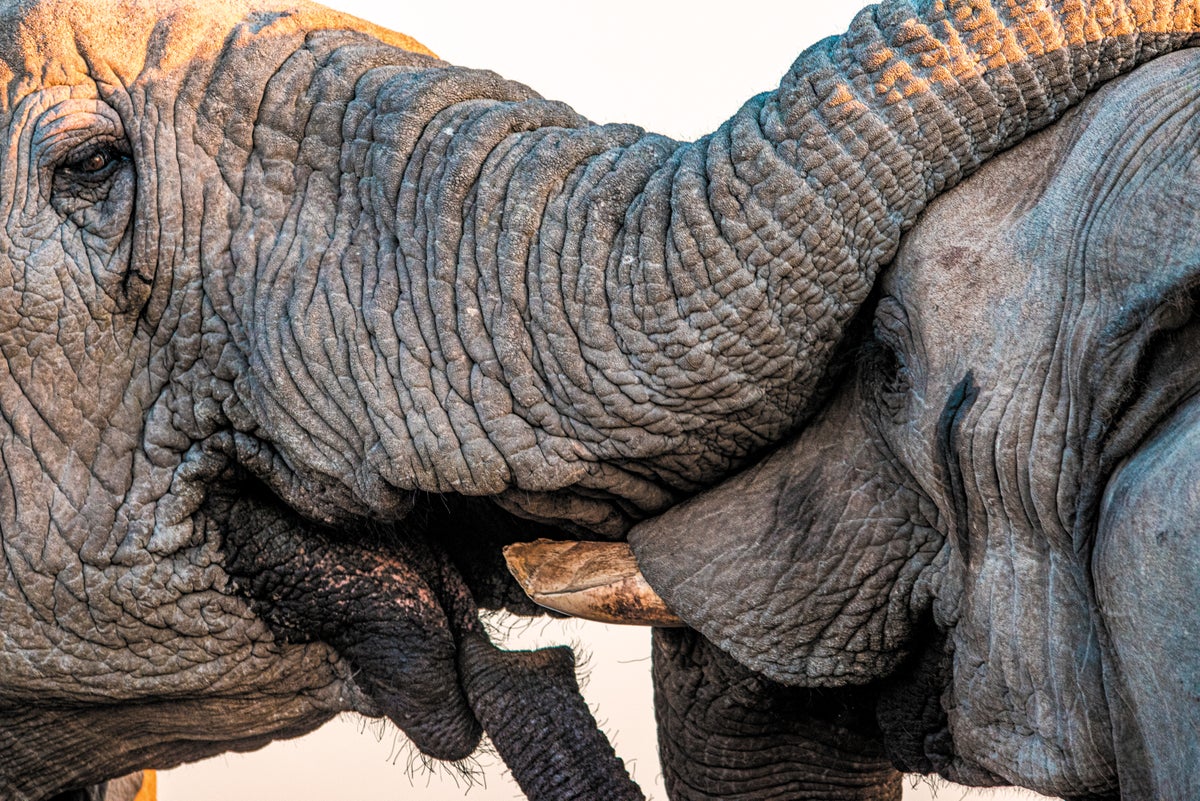
"The age-old matriarchal societies of African elephants reveal complex social structures, emphasizing the importance of females in guiding their family groups to resources and safety."
"Abe, an older bull elephant, exemplifies the significance of long-term studies in understanding the behavior patterns and social interactions of key species in the wild."
The article describes an intimate moment in Namibiaâs Etosha National Park, where the author observes two bull elephants, Abe and Andries, at a waterhole. Abe, a long-term subject of study, had not previously been seen during the year and showcases the importance of understanding African elephant behavior, particularly their social structures. Elephants are known for their matriarchal societies where elder females lead families. The observations of Abe highlight the significance of studying individual animals to gain insights into larger social dynamics in elephants.
Read at www.scientificamerican.com
Unable to calculate read time
Collection
[
|
...
]